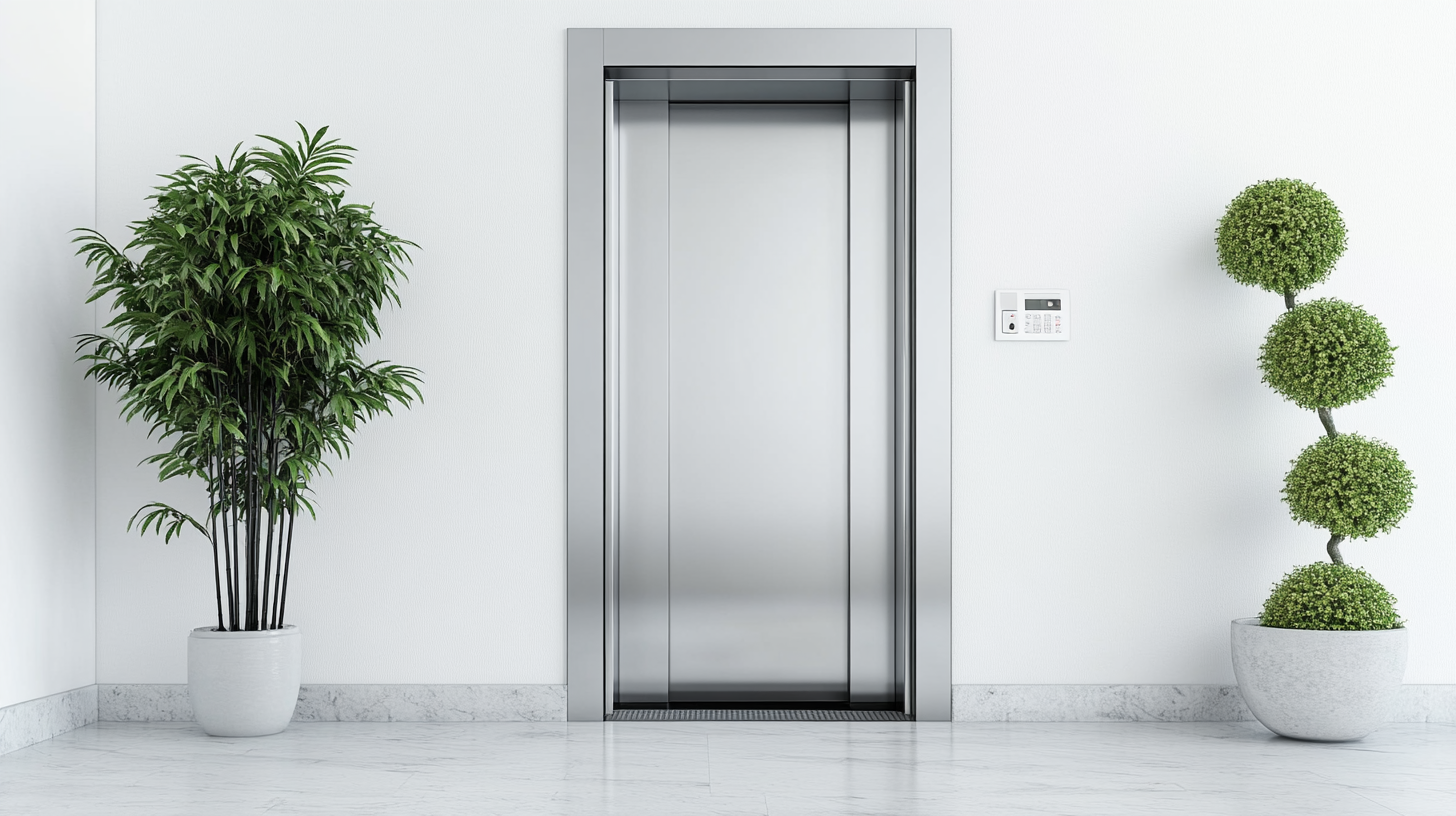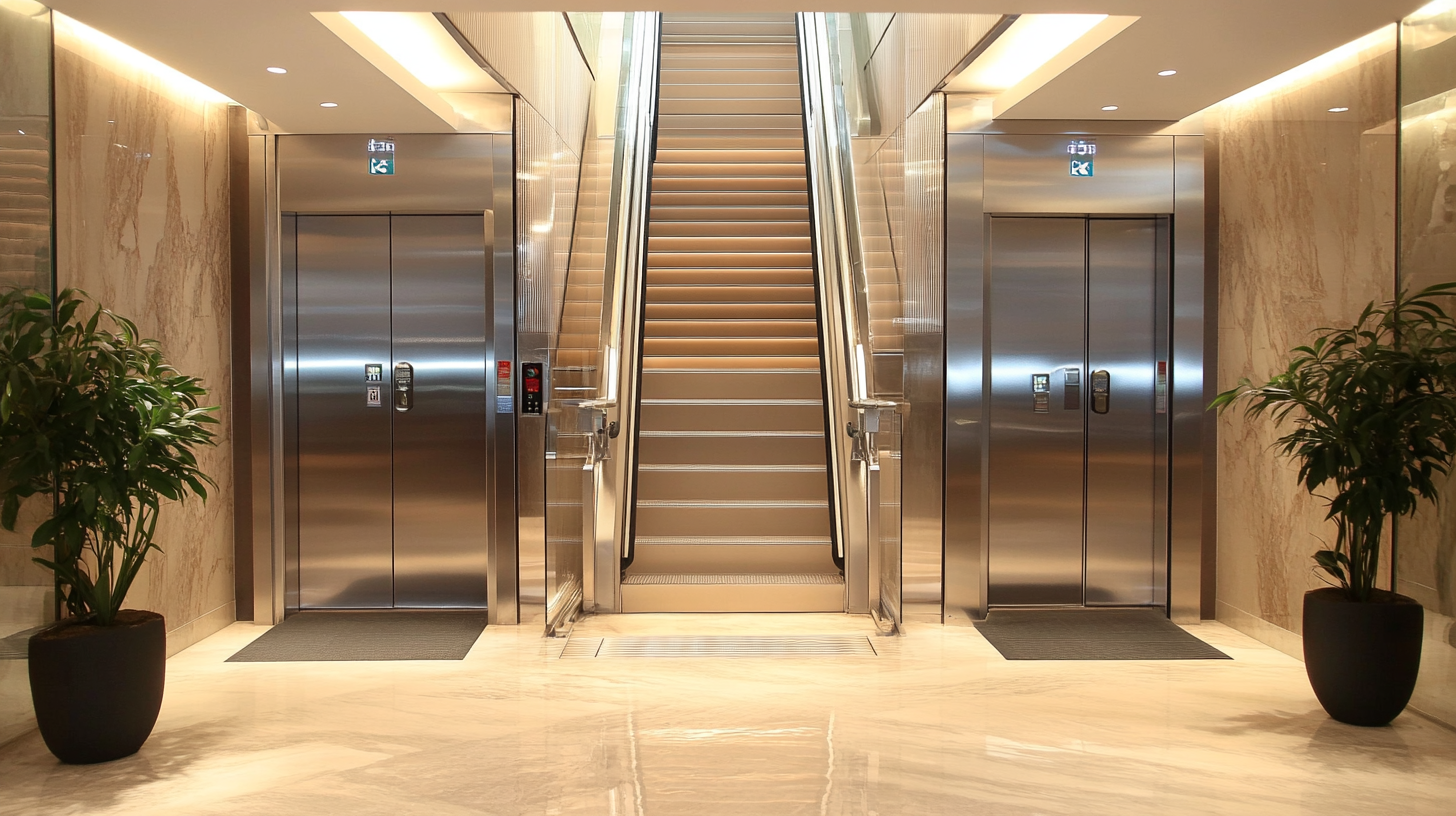Discovering Top Quality Suppliers for Stair Lift Elevators Your Complete Path to Sourcing Success
In today's rapidly aging population, the demand for mobility solutions has surged, with the stair lift elevator market witnessing significant growth. According to a recent report by Allied Market Research, the global stair lift market is projected to reach $3.8 billion by 2027, growing at a compound annual growth rate (CAGR) of 5.1% from 2020 to 2027. This growth is primarily driven by the increasing need for home modifications to accommodate elderly and differently-abled individuals, making the selection of high-quality suppliers crucial for success in this industry.
Finding reputable suppliers for stair lift elevators is essential not just for ensuring product reliability, but also for maximizing customer satisfaction. The importance of sourcing from top-tier manufacturers cannot be overstated, as statistical insights suggest that poor product quality directly correlates to increased maintenance costs and customer complaints. By establishing a strong network of trusted suppliers, businesses can enhance their service offerings and boost their competitive edge in the market, ultimately leading to sustainable growth and a positive impact on the lives of users relying on stair lift elevators for improved mobility.

Identifying Your Needs: Key Considerations for Stair Lift Elevators
When it comes to sourcing the right stair lift elevators, identifying your needs is crucial. According to a recent report by the International Elevator and Escalator Industry, the demand for stair lifts has increased by over 15% annually, driven by an aging population and the need for accessible living solutions. This growing awareness highlights the importance of understanding specific requirements before engaging with suppliers.
Start by evaluating the physical space where the stair lift will be installed. Measurements, including the width of the stairs and the angle of the incline, are essential to ensure proper fit and safety. Additionally, consider the weight capacity needed for users. Industry standards indicate that most stair lifts support between 250 to 500 pounds, but specific models may offer higher capacities or customizable options. Knowing these parameters allows for a more focused search for suppliers who specialize in your desired specifications.
Another key consideration is the type of stair lift that best suits the user's needs. Straight stair lifts are typically less expensive than curved models, which require specialized tracks. According to a survey by the National Association of Home Builders, over 60% of homeowners prefer straight stair lifts for their simplicity and affordability. However, if your staircase has multiple turns or landings, opting for a curved stair lift ensures safety and usability. By identifying these specific requirements, you can streamline your sourcing process and connect with suppliers that provide tailored solutions perfectly suited to your needs.

Researching the Market: Where to Find Quality Suppliers
Researching the market for top-quality suppliers of stair lift elevators is a crucial step towards ensuring success in your sourcing journey. As accessibility solutions grow in demand, the marketplace becomes increasingly competitive. Start by identifying key industry leaders through trade shows, exhibitions, and online industry forums where manufacturers showcase their innovations. These gatherings not only provide a firsthand look at various products but also create opportunities to network with potential suppliers.
Another effective method is leveraging online platforms and directories dedicated to mobility equipment. Websites like ThomasNet, Alibaba, and global trade portals offer comprehensive listings of manufacturers and suppliers. Make sure to read reviews and testimonials from previous clients to gauge supplier reliability and quality. Additionally, engage with industry-specific groups on social media platforms to gain insights and recommendations from other professionals in the field.
Don’t overlook local suppliers or manufacturers who may offer personalized service, especially if they specialize in stair lift elevators. Conducting thorough due diligence by requesting samples, certifications, and compliance with safety standards can help you narrow down potential suppliers. By investing time in research and building a robust supplier database, you will be well on your way to sourcing success in the stair lift elevator market.

Evaluating Supplier Credentials: What to Look For
When sourcing stair lift elevators, evaluating supplier credentials is paramount to ensure quality, safety, and reliability. The first step in this assessment is verifying the supplier's experience in the industry. Look for suppliers with a solid track record, ideally those who have been in business for several years and have a history of providing products that meet industry standards. This experience often translates into better product knowledge, service reliability, and the ability to navigate regulatory requirements effectively.
Another critical factor to consider is certification and compliance. Suppliers should possess certifications from recognized industry bodies, which indicate that their products adhere to safety standards and regulations. Look for compliance with local and international standards, such as ISO certifications and safety tests conducted by accredited organizations. This not only assures product quality but also minimizes legal risks associated with non-compliance.
Additionally, customer feedback and testimonials can provide invaluable insights into a supplier’s reputation. Research reviews from previous customers to gauge their satisfaction levels regarding product performance and customer service. A supplier who is responsive and has a strong support system is essential for long-term partnerships. By focusing on these criteria, you can effectively evaluate suppliers and ensure that your sourcing journey leads to successful outcomes in acquiring stair lift elevators.
Building Strong Relationships: Tips for Effective Supplier Communication
Effective communication with suppliers is essential in the stair lift elevator industry, where quality and reliability are non-negotiable. According to a recent report by Grand View Research, the global market for stair lift elevators is projected to reach $8.9 billion by 2028, emphasizing the demand for top-quality products. Establishing strong relationships with suppliers can significantly influence your sourcing success, allowing you to navigate market complexities more effectively.
To foster effective supplier communication, consider implementing regular feedback loops. A study by the Procurement Research Institute shows that companies engaging in consistent dialogues with suppliers can enhance their product quality by up to 25%. These interactions not only help in clarifying expectations but also build trust and teamwork, which are vital components for long-term collaborations.
Additionally, leveraging technology can streamline communications and bolster relationships. Tools like cloud-based project management software enable real-time sharing of project updates, reducing misunderstandings and delays. Data from Statista indicates that 70% of businesses in the construction sector reported improved supplier relationships through digital communication platforms. In the rapidly growing sector of stair lifts, such advancements can lead to more efficient sourcing and ultimately drive greater customer satisfaction.
Supplier Communication Effectiveness in Stair Lift Elevator Sourcing
Negotiating Contracts: Ensuring Fair Terms and Conditions
Negotiating contracts is a vital aspect of securing the best terms when sourcing stair lift elevators. In an environment where recent negotiations in various industries have highlighted the importance of fair contract terms, understanding the nuances of contract negotiations can greatly influence sourcing success. For instance, the ongoing strikes by nurses and healthcare professionals at UMH-Sparrow due to failed negotiations underscore the dire need for equitable contracts that address worker rights and conditions. This concept is equally vital in product sourcing, where suppliers must ensure that their agreements reflect fair pricing and terms that protect their interests.
Industry reports indicate that companies engaging in contract negotiations see an increased likelihood of long-term partnerships when both parties feel reasonably treated. Specifically, a survey by the International Association of Contract and Commercial Management revealed that 70% of successful contract negotiations led to repeat business. Therefore, when sourcing stair lift elevators, it is crucial not only to focus on the price but also to create a comprehensive agreement that covers maintenance, warranty provisions, and delivery timelines.
The success of these negotiations can often hinge on preparation and understanding both parties' needs. Emphasizing transparency during discussions can lead to better overall satisfaction and cooperation. Establishing a clear understanding of terms such as exclusivity agreements, payment schedules, and liability clauses can prevent disputes down the line. By applying these lessons learned from various industries, sourcing teams can navigate negotiations more effectively, ensuring that they secure high-quality suppliers while also building sustainable business relationships.
Supplier Quality Assessment for Stair Lift Elevators
This chart represents the evaluation of top-quality suppliers for stair lift elevators based on three criteria: Quality, Price, and Delivery Time. Each bar reflects the average rating given to suppliers in these key areas, helping you identify the best partners for your sourcing needs.